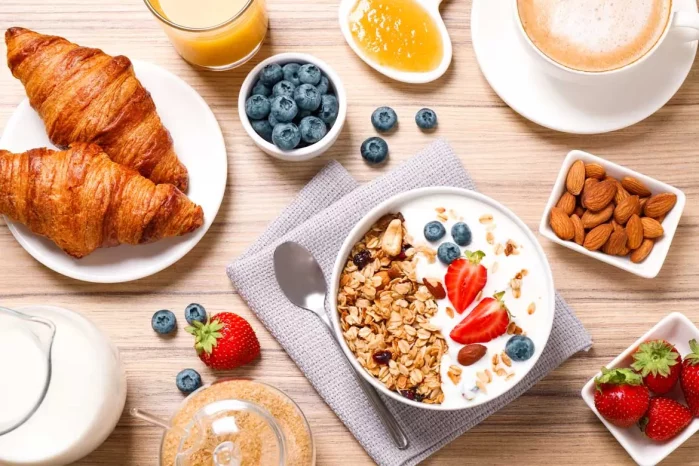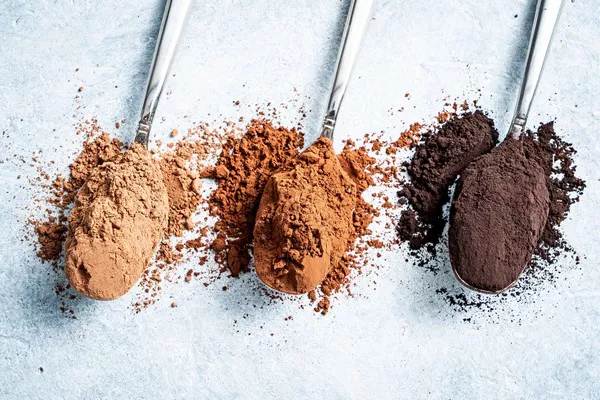Gaining weight can be just as challenging as losing weight for some people. Whether you’re looking to build muscle, recover from an illness, or simply want to increase your body mass, understanding how to properly eat for weight gain is essential. In this article, we will explore different food groups and strategies you can use to gain weight in a healthy and effective way.
Understanding Caloric Surplus
To gain weight, your body needs to be in a caloric surplus. This means you need to consume more calories than you burn. However, it’s important to focus on the quality of your calories, not just the quantity. A healthy weight gain plan involves eating nutrient-dense foods that provide your body with the necessary vitamins, minerals, and macronutrients to support growth, muscle repair, and overall health.
High-Calorie Foods
In order to eat enough to gain weight, you’ll want to include high-calorie foods that are rich in nutrients. Below are some of the best options.
Healthy Fats
Fats are calorie-dense, meaning you can consume a lot of calories without having to eat large volumes of food. Healthy fats are especially important for overall health, and they can help with hormone production, energy storage, and cellular function. Here are some of the best sources of healthy fats:
Avocados: Packed with heart-healthy monounsaturated fats, fiber, and vitamins.
Nuts and Nut Butters: Almonds, walnuts, cashews, and peanut butter are high in healthy fats and protein.
Olive Oil: A great addition to salads, cooking, or as a drizzle over vegetables. It’s rich in monounsaturated fats.
Coconut Oil: Another high-calorie fat, ideal for cooking or adding to smoothies.
Full-Fat Dairy: Whole milk, full-fat cheese, and yogurt are good sources of both fat and protein.
Proteins for Muscle Gain
While you focus on consuming more calories, make sure to include an adequate amount of protein in your diet to support muscle growth. Protein is essential for repairing muscle tissues, especially if you are engaging in strength training or other muscle-building activities.
Lean Meats: Chicken, turkey, lean beef, and pork are excellent sources of protein.
Fish: Salmon, tuna, and other fatty fish are rich in protein and healthy omega-3 fats.
Eggs: Whole eggs are a great source of high-quality protein and healthy fats.
Legumes: Beans, lentils, and chickpeas are not only high in protein but also in fiber and calories.
Carbohydrates for Energy
Carbs are another important source of calories. They provide your body with the energy needed for everyday activities and workouts. When looking to gain weight, focus on complex carbohydrates that are nutrient-dense and not overly processed.
Whole Grains: Brown rice, oats, quinoa, and whole wheat bread provide fiber and energy.
Starchy Vegetables: Potatoes, sweet potatoes, and squash are high in carbohydrates and very filling.
Pasta and Bread: Whole grain or whole wheat pasta and bread can help you increase your calorie intake.
Fruits: Bananas, mangoes, avocados, and dried fruits like apricots and raisins are high in calories and natural sugars.
Eating More Frequently
If you struggle to eat enough to gain weight, eating smaller meals more frequently throughout the day can help. Instead of eating three large meals, aim for five to six smaller meals. This will allow you to consume more calories without feeling too full at any one time.
Drink Calories
Sometimes drinking your calories can be easier than eating them. This is especially true for people with small appetites or those who feel full quickly. Drinks like smoothies, milkshakes, and protein shakes can help you add more calories without feeling overly stuffed.
Smoothies: Blend fruits, full-fat yogurt, nut butters, and protein powder for a calorie-dense drink.
Milkshakes: Make milkshakes with ice cream, milk, and fruit to boost your calorie intake.
Protein Shakes: Use a high-calorie protein powder to make shakes that can help support muscle gain.
Juices: Fresh fruit juices, especially when combined with added sugars or honey, can also provide extra calories.
Snack on Calorie-Dense Foods
Snacking can also help you increase your caloric intake throughout the day. The best snacks for weight gain are those that are high in both fat and protein. This way, you can ensure that your snacks contribute not only to your total calorie intake but also to muscle-building and nutrient-dense foods.
Nuts and Trail Mix: A handful of mixed nuts and dried fruits can provide a quick, high-calorie snack.
Granola Bars: Choose high-calorie granola bars that are rich in fats, nuts, and oats.
Cheese and Crackers: Pairing cheese with whole-grain crackers can be a good combination of protein, fat, and carbs.
Hummus and Pita Bread: Hummus is full of healthy fats and protein, while pita bread adds extra calories.
Include Healthy Drinks
Some drinks can add not only extra calories but also nutritional value to your diet. Here are some options that can help you consume more calories.
Whole Milk: Opt for whole milk instead of skim or low-fat milk, as it contains more calories.
Vegetable Juices: Vegetable juices are nutrient-rich and can be an easy way to drink your calories.
Coconut Water: While not as calorie-dense as other drinks, coconut water can hydrate you and offer additional vitamins and minerals.
Calorie-Fortified Beverages: Some beverages, like meal replacement shakes, are specifically designed to be high in calories and can supplement your regular meals.
Focus on Nutrient-Dense Foods
When you’re trying to gain weight, it’s easy to fall into the trap of eating foods that are simply high in empty calories—foods that don’t provide much nutritional value but are calorie-dense (think chips, soda, and candy). However, to gain weight in a healthy manner, you should focus on nutrient-dense foods that provide the necessary vitamins, minerals, and antioxidants your body needs to function properly.
Leafy Greens: Spinach, kale, and other dark leafy greens are packed with essential vitamins and minerals. Pair them with healthy fats and proteins to increase the calorie content of your meals.
Berries: Blueberries, strawberries, and other berries are rich in antioxidants and micronutrients.
Citrus Fruits: Oranges, lemons, and grapefruits are full of vitamins and help with immune function.
Don’t Skip Strength Training
If you’re aiming to gain weight, especially in the form of muscle, you should incorporate strength training into your routine. Lifting weights or doing resistance exercises will help you build muscle mass, which will add healthy weight and give you a toned appearance. Along with your protein intake, strength training helps ensure that the weight you gain is muscle, not just fat.
Track Your Progress
Keeping track of your meals, snacks, and physical activity can help you stay on track with your weight gain goals. Use a food diary or an app to monitor your calorie intake, ensuring you’re consistently eating more calories than you burn. Adjust your eating habits if you find that you’re not gaining weight after a few weeks.
Conclusion
Gaining weight in a healthy way involves consuming a balanced, calorie-dense diet that supports muscle growth and overall health. Focus on eating foods high in healthy fats, protein, and carbohydrates, and aim to increase your meal frequency. Snacks, calorie-dense drinks, and nutrient-rich foods will help you reach your caloric goals. Combine this with strength training to build muscle, and you’ll be on your way to a healthier, stronger body.
Related topics:























